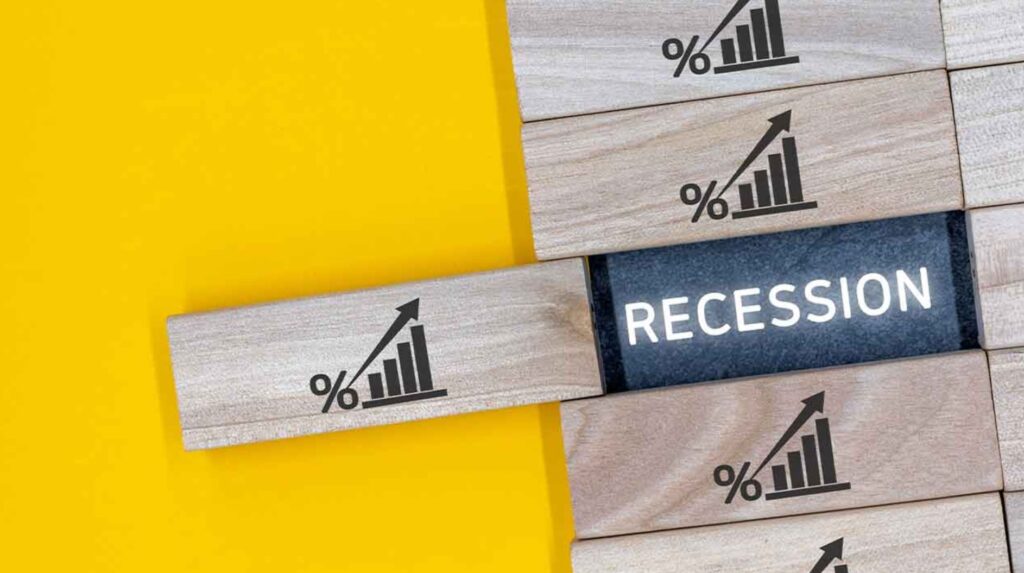Authored by Daniel Lacalle
If The U.S. Falls into Recession, It Will Be From Years of Government Excess
Overheating the economy with a massive increase in government spending, disguising employment with public sector jobs, and soaring federal debt. The foundation of Neokeynesian economics always rests on the idea that an economy must prioritize government spending, leading to full blown socialism. When the economy is growing, government spending rises because, allegedly, it is time to borrow and grow. When the economy overheats and enters the inevitable recession, government spending must rise again because it needs to support growth. See? The size of government in the economy increases both during and after a recession. Taxes constantly rise, but debt rises faster. Upside-down economics.
The Biden-Harris administration has followed exactly the policies of the Greek, Spanish, and French socialists into an election year prior to their countries’ crises. The strategy involves inflating the GDP through excessive government spending, creating an uncontrollable deficit during a period of economic recovery, and masking employment through government jobs financed by increased debt. In the process, the printing of money results in the highest inflation in decades.
Why would a government do this?
- Firstly, it serves to present inflated headline GDP and employment figures.
- Secondly, they can attempt to attribute inflation to supermarkets, corporations, and anyone else besides the government, which prints currency without any control.
- Thirdly, they can attribute the debt bubble’s burst to the upcoming administration’s efforts to rein in spending and debt levels.
- Fourth, if they had emerged victorious in the elections and the recession erupted, they would pledge to increase spending, increase taxes, and justify even higher public debt, claiming “extraordinary” circumstances.
Of course, now that the Harris-Waltz team has lost the elections, Democrats can blame Trump and Vance for the recession they have engineered. If Trump falls into the trap of maintaining elevated government spending and high taxes, he will be blamed for the new debt and the deficit. If he does not, he will be blamed for the deterioration of the public sector and the economic contraction.
One of the most common mistakes of center-right governments in developed economies is their lack of courage to really cut spending and taxes and restore economic logic, putting the private sector and productive investment at the forefront of the economy. It is more comfortable to keep increasing government spending, maintain high taxes, and pass the bill to the next. In doing so, these center-right parties, even if they are in power, lose. See the example of the United Kingdom when Conservatives decided to adopt social democratic policies.
The United States must defend the US dollar and prioritize private sector growth to implement real pro-growth policies. After three decades of demand-side policies that have only left more debt, it is time for supply-side and pro-growth policies.
Increased government spending leads to the issuance of more currency units and an artificial increase in money velocity. Keynesian interventionists propose higher taxes to reduce the excess of money in the system. Therefore, government size in the economy rises in periods of expansion and rises as well in periods of slowdown, eroding the investment and saving capability of the economy. The road to stagnation. This leads to persistent inflation, lower real wages, and economic stagnation.
As such, a recession resulting from the control of government spending and debt is not a negative event. It is simply the manifestation of a previous excess. Reducing taxes and cutting the excesses of past years in government jobs and expenditures will only make the GDP healthier.
In the past four years, federal debt growth has exceeded even nominal GDP growth, and by a significant margin. Curbing that path to ruin is an essential policy.
It is better to have a short and healthy recession if it comes from lower government spending and more attractive taxes than to maintain GDP growth with debt and unproductive expenditure.
A short recession can be positive. It is like the process of losing weight and doing exercise following a sugar and alcohol binge. The economy will be stronger by making the private sector more robust, and subsequent growth will be more productive and sustainable.
It is essential that the next Treasury secretary talks about the essential adjustments required by the economy and the reality of the time bomb inherited from the Biden administration. Bidenomics was an upside-down approach to economics, and the United States requires supply-side strategies to restore productivity, wealth, and genuine prosperity.
Reducing deficits and debt with higher taxes is an unacceptable option. On the one hand, there is no revenue measure that can eliminate the current $2 trillion deficit. However, tax receipts follow a cyclical pattern, while public spending is a yearly and consolidated process. Therefore, using taxes to reduce debt always fails.
Sound money and a responsible government budget, supported by lower taxes and reduced bureaucratic expenditures, are the only options to strengthen America’s economy. Socialism would be disastrous. Conservative Keynesianism would be useless. The U.S. must learn the lesson of the UK and the EU countries’ recent examples and avoid the convenient trap of right-wing socialism.
The only way in which the United States will escape the seemingly inevitable debt and currency crisis will be to cut spending, reduce taxes, pump growth driven by private investment and rising real wages, and strengthen the US dollar by reducing indebtedness and conducting a sound monetary policy.
Sourced from ZeroHedge
Image: Money Metals
Become a Patron!
Or support us at SubscribeStar
Donate cryptocurrency HERE
Subscribe to Activist Post for truth, peace, and freedom news. Follow us on Telegram, HIVE, Minds, MeWe, Twitter – X and Gab.
Provide, Protect and Profit from what’s coming! Get a free issue of Counter Markets today.
Read the full article here



